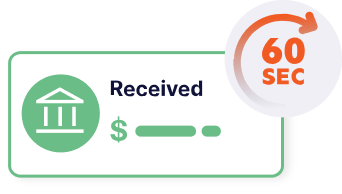One of the most nerve-wracking experiences as a business owner is being short on funds when payroll is due. The good news? This happens to many businesses, and there are payroll financing options designed specifically for small businesses in this exact situation.
Why you may need payroll financing
New businesses often face cash flow challenges. Even established businesses can get hit with unexpected expenses, or invoices may not come in as expected. This blog was inspired by conversations with several customers who’ve experienced similar issues.
First, figure out how much time you have to cover payroll, then consider the best financing option for your business. Free expense management software can help track this. Be sure to communicate with your staff ahead of payday to avoid surprises. After all, in the U.S., 71% of workers say they’d struggle to pay bills if their paycheck were late.
Also, if you’re working with a payroll provider, reach out to them. Many providers are used to working with small businesses during cash flow challenges and might offer advice or solutions.
What you need to know about payroll funding
Because payroll financing requires a quick turnaround, the best options are short- to medium-term loans, a business line of credit or invoice factoring. Sometimes you may hear one or all of these options classified as payroll loans. All are conveniently offered by online lenders.
If you’re wondering why a traditional small business loan is usually not your best choice when you’re looking for payroll financing, it’s because of the lengthy application and approval process that’s required.
Using short-term loans to fund payroll
A short-term payroll loan will help you finance your payroll within two to three business days or sometimes as little as one business day. If you choose this option, plan to pay the loan back within 12 months and expect to have a higher interest rate.
Using medium-term loans to cover the cost of payroll
If you have up to five business days (a week) before you need payroll financing, you can look into a medium-term loan. With a medium-term payroll loan, you’ll have a longer application and approval process. However, as a result, you’ll have up to five years to pay the amount back. Your interest rates will also be a little lower than with a short-term payroll loan.
Using a business line of credit to finance payroll
If you think there’s a good chance you might have to use payroll financing more than once in the near future, you might want to consider a business line of credit. More of a long-term solution, a business line of credit provides you with a set amount of money that you can access as need. You also only pay interest on the money you take out.
While business lines of credits are available through traditional banks, they’re much more time-consuming and harder to qualify for than if you apply for one by going through an online lender. Depending on the online lender, you may also be approved in as little as one business day.
Using invoice factoring to cover payroll
If you’re a business-to-business company, you may also be able to sell one of your unpaid invoices in order to finance payroll. This is called invoice factoring. What a purchaser (factor) will do is offer to buy your invoice at a percentage of its value. The factor then gives you the money and collects their funds when the invoice is paid by the customer.
Although the invoice faction is a well-established funding option, there are several variations on this model. When you search for a company that offers invoice factoring, make sure you understand how it works and what the terms will be.
As the main variable in qualifying for invoice factoring is the quality of your invoice, invoice factoring is also a good option for new business-to-business companies who may not have an established credit history.
Do your homework
Even if you’re in a hurry, you want to research your payroll financing options, comparing:
- Approval time — how long it takes to get approved.
- Time to receive funds — how long it takes to get the money after approval.
- Available amounts — how much you can get.
- Payback period — how long you have to pay the money back.
- APR — annual percentage rate (interest rate).
You’ll also want to find out what financial and business information you’ll need to provide in order to qualify, such as a credit history, annual revenue and how long you’ve been in business.
Our bonus tip — always pay your payroll taxes
Whenever you use payroll financing to solve a shortage of funds, make sure you also pay your payroll taxes. Payroll taxes are the sums that employers take out of employee paychecks, such as income tax and various social programs, depending on the country.
As payroll taxes are taxes, you’ll only be adding to your woes if you fall behind on your payments. The tax authorities in charge are not lenders and interest on late payments compounds quickly.
If you’re already taking on interest from a loan, you don’t want to make things worse by falling out of grace with the tax authorities. When you have to use payroll financing, borrow enough money to cover every aspect of your payroll. That way you only have to pay interest to one entity instead of several.
Avoiding payroll financing in the future
Nobody likes dealing with cash flow problems, but sometimes they happen. The good news is that being prepared with payroll financing options like short- or medium-term loans, a business line of credit, or invoice factoring can help you tackle any surprises that come your way.
Even better? Improving your cash flow can help you avoid relying on these options. With Forwardly, you’ll enjoy instant payments—get your money in under 60 seconds—and free same-day ACH transfers so that you can get your business payments without the hassle. Our free one-click bill payments let you keep your cash longer and ensure payments are sent exactly when due, so you’ll never miss a deadline. With Forwardly’s help, you can avoid the stress of payroll issues at no monthly subscription cost and keep your finances running smoothly.
 Back to Blog
Back to Blog


